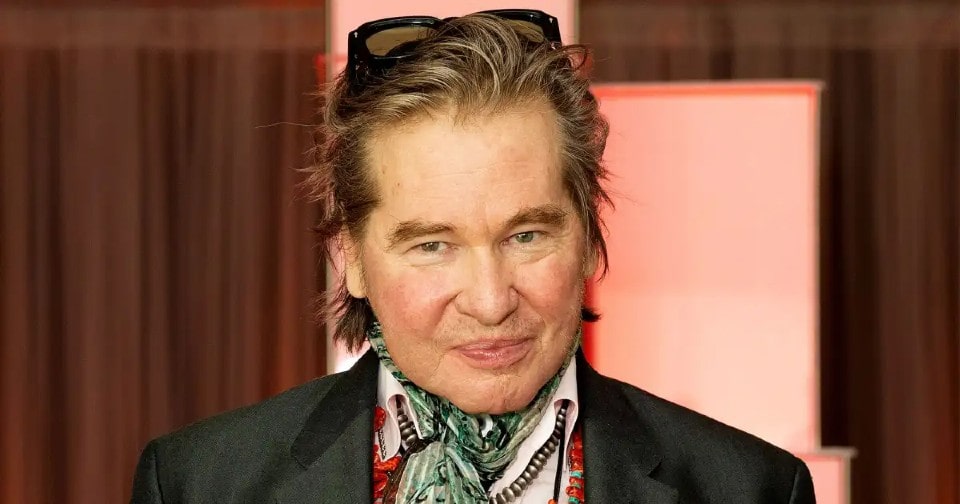Val Kilmer, 62, who famously played Madmartigan in 1988 hit film Willow, has been unable to participate in the recently released Disney+ sequel series due to some lingering health issues from his cancer treatment.
Unfortunately, due to the current global pandemic, Val could not participate in Willow’s relaunch. “COVID made it impossible for us to prepare in the spring when cases were so rampant,” showrunner Jonathan Kasdan explains.
Furthermore, Kilmer chose not to discuss his health issues because he did not want them to interfere with production.

Although he will not be able to reprise his role as Madmartigan in this sequel series, fans will remember and appreciate Val’s performance from 30 years ago and are excited to see what the new installment has in store.
When Val Kilmer declined to appear in the new series, director Ron Kasdan was determined to find a way to keep the story they wanted to tell him about his journey alive.
He recounted when he broke the news to Kilmer, recalling how they embraced, and said, “I’m still very strong.” Following that, they began planning the first season, but it wasn’t until late in pre-production that they realized Kilmer would not return.
Despite Kilmer’s refusal to participate in this project, Kasdan ensured that his spirit would be remembered while leaving room for future projects. To that end, they have made every effort to engage with him and ensure that his voice is heard and felt through indirect means.
Kilmer’s health issues began in 2015 when he was diagnosed with throat cancer. He kept the diagnosis private until 2017 when his children from his marriage to English actress Joanne Whalley (61) pushed him to undergo chemotherapy treatment.
Kilmer has shown tremendous courage despite this setback, which impressed Kasdan during their last meeting.
Val Kilmer initially refused conventional cancer treatment due to his faith in Christian Science, which he believed would cure him of the tumors.
Unfortunately, this was not the case, and he needed to have a tracheotomy, a surgical procedure connecting the larynx to an opening on the front of the neck, resulting in changes to his voice.
Despite this, Kilmer could still play Iceman in The X-Men franchise thanks to technological advances that allowed filmmakers to recreate Val’s distinct speech patterns using recordings of himself speaking.
Kilmer kept the devastating news to himself until he addressed it in his autobiography I’m Your Huckleberry and in interviews. He also produced a documentary titled Val, which documents this life-changing experience and is now available on Amazon Prime.
Despite these challenges, Kilmer has been cancer-free for more than four years and is highly grateful to the tremendous progress he has made since then.
When his voice was affected, established actor Val Kilmer took to Twitter to explain how he found solace in painting. He expressed gratitude that, while one thing had been taken away from him, another had become available – art. As he resumed writing and drawing, the re-emergence of his creative side provided him with a transformative healing experience.
Science widely acknowledges the therapeutic effects of practicing art. An hour of artistic activity can reduce stress and improve mental health, according to a 2016 study published in the Journal of the American Art Therapy Association. This is true regardless of artistic training or ability.
It is critical to keep up with advances in understanding the various types and causes of cancer, even if it can sometimes feel overwhelming. Art is a rewarding way to cope with the emotions associated with the loss of a loved one due to cancer; whether through singing, dancing, crafting, or painting – anywhere and at any time – its positive impact on mental health is undeniably irrefutable.
The use of alcohol and cigarettes, as well as the human papillomavirus, are some of the most significant risk factors for throat cancer (HPV).
Although HPV is typically associated with women and can cause cervical cancer, it has also been linked to throat cancer and can affect both genders. According to Dr. Jessica Geiger of the Cleveland Clinic Cancer Center, HPV can cause throat cancer in men just as much as it does in women. The virus that causes throat cancer is also the virus that causes cervical cancer in women.
Many cases of HPV-related throat cancer occur in men in their 40s or 50s; however, there are cases in people who only smoke occasionally or do not smoke.
According to research, even light smoking or second-hand smoke exposure may be linked to the development of throat cancer. Other potential risks include genetics, exposure to certain industrial chemicals and other airborne contaminants, radiation therapy, and extreme obesity.
Although HPV-related throat cancer has become more common in recent years as a result of increased awareness of sexual health practices such as safe sex habits and regular STI (sexually transmitted infections) screenings, it is equally important for individuals to take preventative measures against throat cancer by avoiding smoking and excessive drinking.




